Search Results
Showing results 41 to 60 of 102
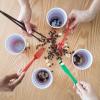
Bean-Counter Evolution
Source Institutions
In this simulation game, learners play as predators equipped with genetically different “mouths” (utensils) and hunt for “prey” (assorted beans).
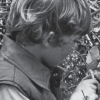
Snug as a Bug
Source Institutions
In this outdoor activity, learners make models of homes that might protect small animals from the elements, then search living plants for real structures made by small animals.
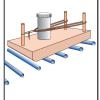
Newton Car
Source Institutions
In this activity, learners work in teams to investigate the relationship between mass, acceleration, and force as described in Newton's second law of motion.
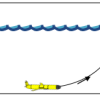
Exploring the Ocean with Robots
Source Institutions
In this activity, learners are introduced to robotic submarines called gliders. Learners make “gliders” from plastic syringes and compare these to Cartesian bottles and plastic bubbles.
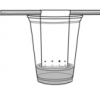
Busted by Biology
Source Institutions
In this two-part activity, learners will extract their own DNA from their cheek cells and learn how DNA is analyzed and used to solve crimes.
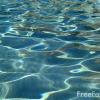
Giving Water the Treatment
Source Institutions
In this ecology activity (page 8 of the PDF), learners explore how to filter contaminated water using a variety of materials.

Biotechnology Through Time
Source Institutions
In this activity, learners investigate the history and development of agricultural biotechnology.
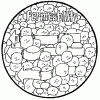
The Ability of Permeability
Source Institutions
In this activity (page 11 of the PDF), learners investigate how quickly water moves through various materials. They measure and compare the permeability of gravel, sand, and soil.

Invent a Plant
Source Institutions
In this activity, learners construct models of plants that are adapted to living under specific environmental conditions.
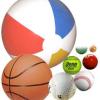
Size, Mass, Area, and Volume
Source Institutions
In this activity (page 23 of PDF), learners conduct an experiment to determine how the size and mass of a projectile affects the area and the volume of an impact crater.
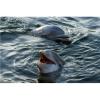
Echolocation Lab
Source Institutions
In this lab, learners experience how dolphins and other echolocating animals use their senses to locate and identify objects without using their sense of sight.
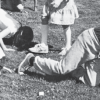
Follow the Scent
Source Institutions
In this outdoor, sensory activity, learners role play as animals trying to identify their "family's" scent and locate their "territory." Learners mark their territories and sniff out other territories
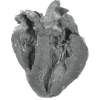
Examining the Heart
Source Institutions
In this activity about the heart (on page 22 of the PDF), learners examine sheep or chicken hearts to learn about the heart's structure and the flow of blood through the heart.
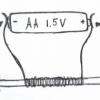
Make a Speaker
Source Institutions
In this activity, learners explore how an electromagnet works by making a simple one. Using this knowledge, learners design a diagram to make a working speaker using household materials.
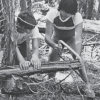
Sawing Away
Source Institutions
In this outdoor activity, learners saw sections from fallen trees, then count tree rings and look closely at patterns of tree growth.

Great Steamboat Race
Source Institutions
In this outdoor activity, learners race small boats, made of cork, balsa wood, popsicle sticks etc., to investigate the rate and direction of currents in a stream or creek.
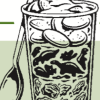
Layered Fossil Parfait: Deeper is Older
Source Institutions
In this activity, learners explore dinosaur fossils by making an edible treat. First, learners read "Dinosaur Bones" by Aliki to examine how fossils are formed.

Potion Commotion
Source Institutions
In this hands-on science experiment, students combine their understanding of the different states of matter and the characteristics of various chemical reactions.
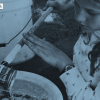
Can Fishing
Source Institutions
In this outdoor activity, learners go "can fishing" and discover the kinds of aquatic organisms that live in and on submerged cans.
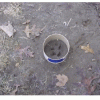
Makin' Tracks
Source Institutions
In this activity, learners make plaster casts of an animal track to learn more about animals and animal behavior.
